
Does Website Speed Actually Affect SEO? We Asked Publishers…

Get helpful updates in your inbox
Does website speed actually affect SEO? Here’s What Publishers Said…
Does website speed affect SEO? Publishers are increasingly interested in site speed as a mechanism for SEO in Google Search. There are a large number of ranking factors that go into Google search rankings according to Google’s webmaster guidelines and site speed is considered a very small factor (as of Google’s mobile speed update).
Google’s Webmaster team has said that site speed scores don’t have a direct correlation to actual page speed. They represent a ballpark representation of how “fast” your site is perceived by the end-user (reader/visitor).
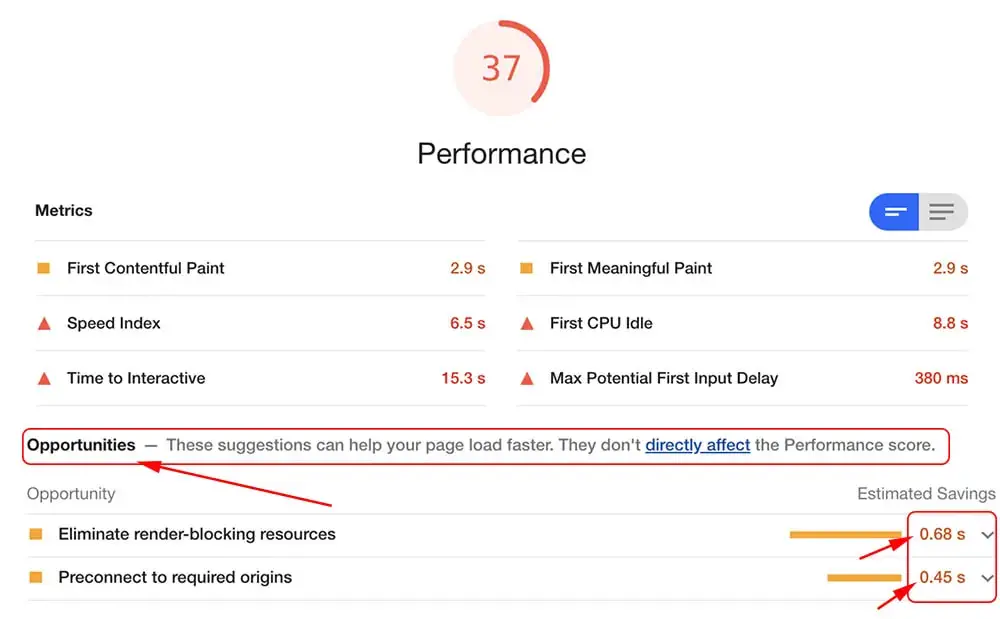
The recommendations that site speed audits from Google’s Lighthouse or PageSpeed Insights are supposed to serve as opportunities to improve items on your site that, if remedied, might incrementally and objectively speed up your site.
By no means are they an end-all-be-all arbiter of whether your site is “fast enough” or not. There is no threshold of page speed Google is looking for.
“We are categorizing pages as really good and really bad. There’s not so much of a threshold in between. We are more or less roughly categorizing the speed experience for users.” —Martin Splitt, Google Webmaster
This means that, unless your site is perceivably slow when landing on your site, you are most likely not being penalized in search rankings for speed.
So why the obsession with site speed? We polled publishers on Twitter on their thoughts on the importance of site speed.
Does website speed affect ad earnings and site traffic?
Given the choice, which one of these would you pick if you could only pick 1?
— Ezoic (@ezoic) November 12, 2019
As a publisher, your business is basically run on two things—revenue and traffic—both go hand-in-hand. Most publishers want traffic because they want revenue. In reality, most publishers would sacrifice a perfect speed score for sustainable traffic which ultimately leads to making more money. These two elements are the lifeblood of the digital publishing business. But somehow, mobile speed won out by a gross majority on this poll. 51% said that they’d rather have a 100/100 mobile speed score than increased revenue and traffic. This is unfathomable because there’s no research or data that a speed score itself is correlated to higher traffic and ad earnings. We’ve shown that UX has a correlation to SEO. Still, you’d be hard-pressed to find any websites out on the internet today that said, “We improved our speed and we saw a 25% increase in organic traffic immediately.” Unless your website is dirt-poor slow, the chances you getting a mobile speed score of 100/100, and then seeing dramatic traffic increases are very low. Those case studies simply don’t exist.
What slows down websites the most?
What do you believe is the single greatest thing slowing down your website? — Ezoic (@ezoic) November 12, 2019
The results for this poll were all over the map, but the highest answer was “honestly, not sure.” After that, it was ad tags. And, we know that ads are proven to slow down pages pretty much across the board.
EXAMPLE: In web.dev tests, Google Auto-Ads on a blank page decreased its performance score 8 points just by the very nature of it being on the page.

Our engineering team at Ezoic has looked at thousands and thousands of sites to see what is the core cause of slowing down a site and it is most commonly third-party javascript (JS).
Often, publishers don’t realize how much extra JS code is on the page. Google Analytics, Facebook pixels—all of these things ad load time to your website. This is why lazy-loading across your site can be an effective way to increase its speed.
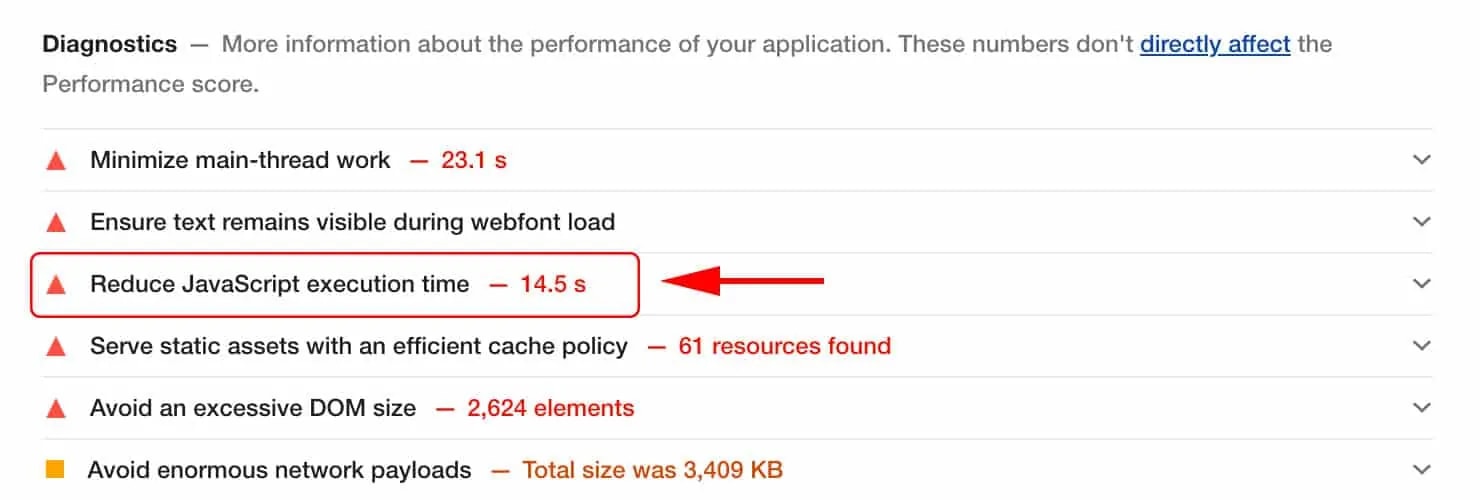
Even for our website at Ezoic, we use HubSpot as a marketing automation tool, and it is the slowest third-party script adding load time to our site. We could remove it, but we wouldn’t have access to the features, data, and benefits that come along with the tool.
Important: While some tools might be slowing down your site, the impact of removing them negligible in comparison to the benefits of keeping them.
Hosts also can make a decent difference to the speed of your website. If TTFB (time to first byte) is something you see consistently causing problems, sometimes a host might be able to address that.
In a lot of cases, just upgrading your hosting plan if you’re at the edge of your bandwidth limit can do the job.
How important is website speed for SEO?
How important is website speed for SEO (in your opinion)?
— Ezoic (@ezoic) November 12, 2019
This poll result just shows how misguided most publishers are on the topic of site speed and how impactful it actually is for SEO. If you want to improve UX metrics that have a greater impact on SEO, you can focus on bounce rates, page views per visit, average engaged time, etc. What’s important is to remember that there are many other metrics that affect SEO to focus on outside of speed.
Remember: While speed may have an effect on certain UX metrics like bounce rates, page views per visit, and average engaged time, these are most likely only affecting users if your site is loading perceptibly slow. Don’t use speed scores to test the actual speed of your site. Visit your site and ask yourself. Does it load quickly? If the answer is yes, then speed is most likely not a contributing factor to these metrics that affect SEO. There are other things that attribute to UX metrics like ads on page, page layout, and more.
That’s why I’m a little skeptical when publishers say the only reason they want a faster site is for “user experience.” We’ve seen multiple times where people improve the speed of their website and the user experience is completely unimpacted. So if that’s not where site speed makes an impact, then what is it? What’s incredible is that website speed was polled as “Top 3 importance for SEO.” There’s almost no data that supports this belief. SEMRush’s ranking factors chart, speed didn’t even make the list for metrics that affect search rankings. 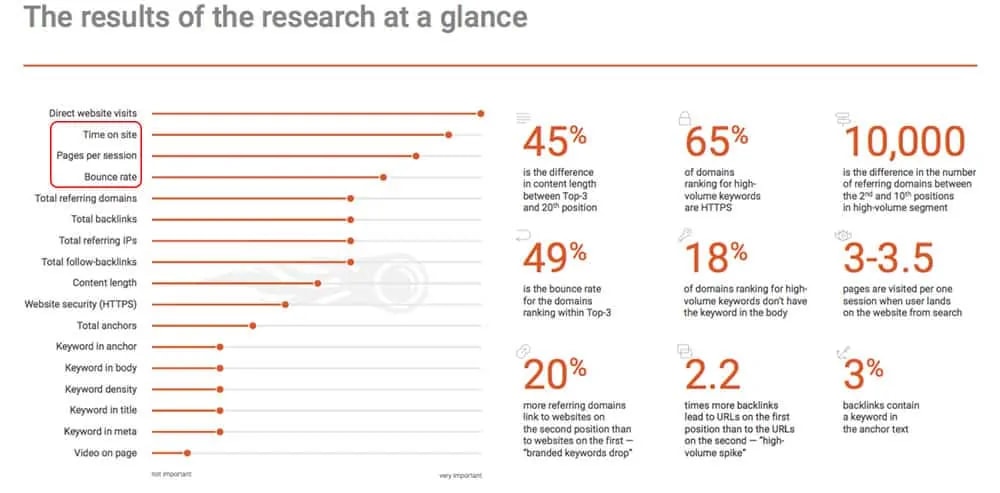 While speed is one contributing factor of UX, it is not the ultimate determiner of UX. This begs the question of who is to blame for this over-emphasis on site speed?
While speed is one contributing factor of UX, it is not the ultimate determiner of UX. This begs the question of who is to blame for this over-emphasis on site speed?
Why are we obsessed with site speed?
Where do you think recent obsessions with website speed have come from? — Ezoic (@ezoic) November 12, 2019
63% of respondents said Google. The second top answer was social platforms. Facebook has emphasized here recently for their advertisers to have landing pages load quickly because Facebook’s browsers and pixels load much slower than traditional browsers, especially within the application. So they need sites to load really fast because slow sites aren’t good for their business model.
We see the major parties (Google, Facebook) are the ones that are pressuring publishers here, despite the fact that they really aren’t providing direction on how to optimize for speed in their eyes.
Google makes tools available, and then, offers advice that suggests none of these tools are used in the evaluation of how they measure speed for webmasters. We recently wrote a blog highlighting Google’s advice on speed, and to say their advice is ambiguous at times is an understatement.
Google has multiple tools for measuring speed and don’t claim to use any of them specifically when evaluating sites:
- Chrome User Experience Reports (CrUX data)
- Pagespeed Insights
- Develop Tools, Lighthouse
CrUX data is what is used in the new Search Console reports and is not made available to publishers in a way that they can understand it any better than in color-coded bars.
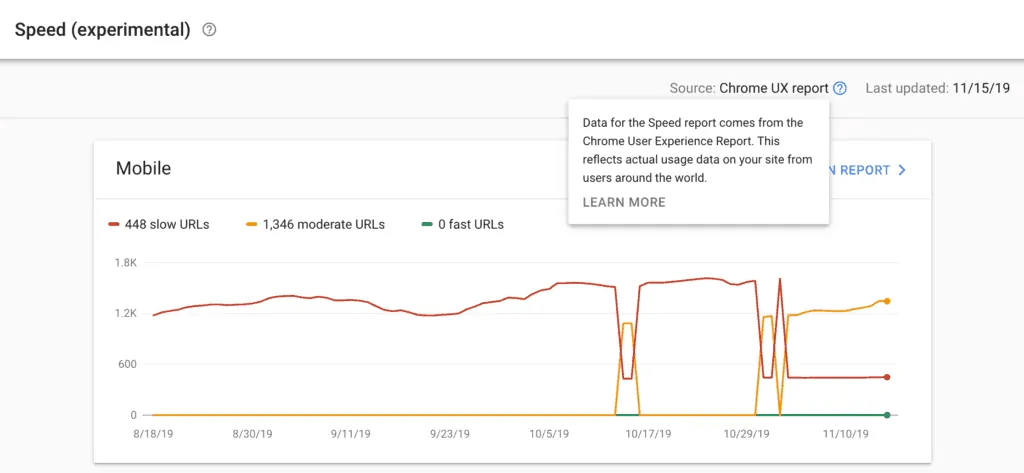
This comes back to the original question I posed early on the first Tweet: What would you rather have, increased traffic, revenue, or speed?
The choice of speed demonstrates that it’s either the fear of the unknown or the fear of missing out that’s driving this obsession.
Will website speed become more of a hot topic in the future?
With Chrome’s recent announcement of the badge of shame (seen below) and all of that material, I believe we’re going to see the discussion around site speed to become more and more intense.
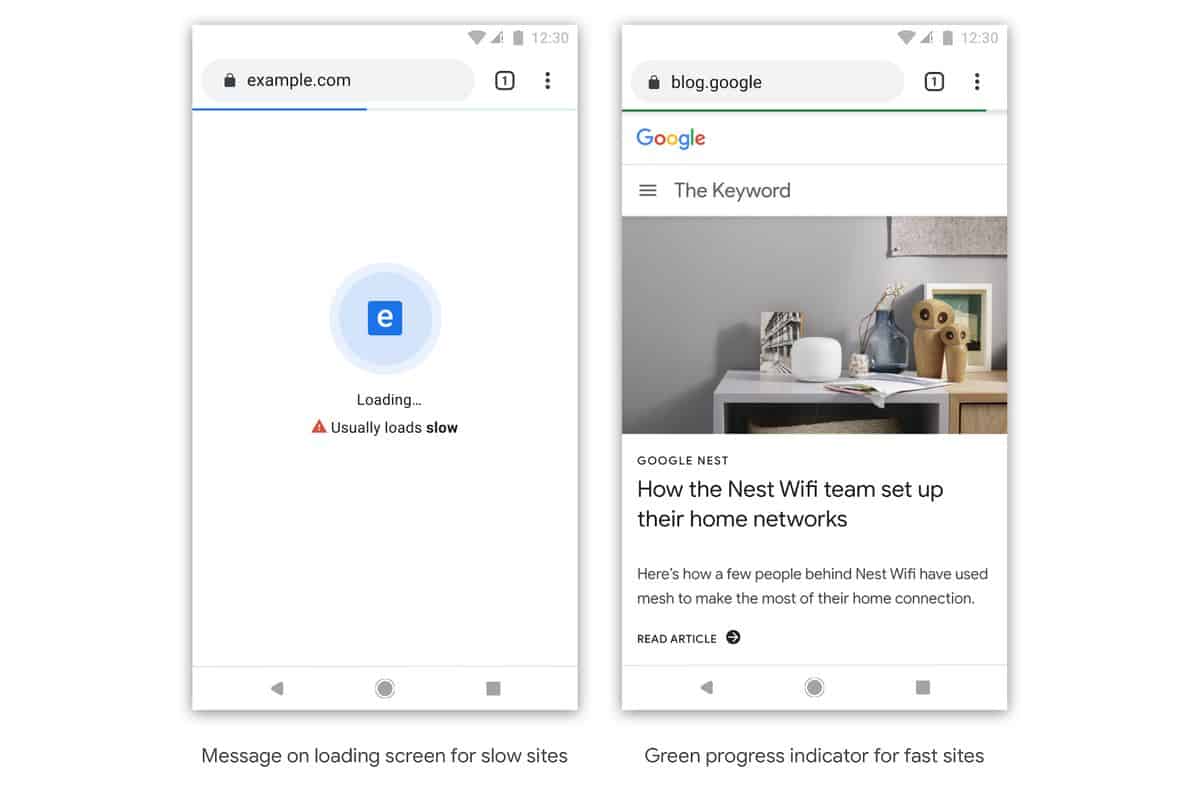
For publishers, the focus should be on paying attention to the objective advice and beware of blackhat site speed. A lot of tools that’ll be available that may not have their ultimate best interest in mind designed to “speed up their site” while at the same time it could be breaking other things or placing a lot of other unnecessary junk on their page that they may not really want.
Ezoic’s Site Speed App is a great tool that doesn’t add unnecessary junk on your page, optimizes actual page speed, and helps improve performance scores with the click of a button.
Do you have any questions on site speed? Let me know in the comments.

Allen is a published author and accomplished digital marketer. The author of two separate novels, Allen is a developing marketer with a deep understanding of the online publishing landscape. Allen currently serves as Ezoic's head of content and works directly with publishers and industry partners to bring emerging news and stories to Ezoic publishers.
Featured Content
Checkout this popular and trending content

Ranking In Universal Search Results: Video Is The Secret
See how Flickify can become the ultimate SEO hack for sites missing out on rankings because of a lack of video.
Announcement

Ezoic Edge: The Fastest Way To Load Pages. Period.
Ezoic announces an industry-first edge content delivery network for websites and creators; bringing the fastest pages on the web to Ezoic publishers.
Launch

Ezoic Unveils New Enterprise Program: Empowering Creators to Scale and Succeed
Ezoic recently announced a higher level designed for publishers that have reached that ultimate stage of growth. See what it means for Ezoic users.
Announcement
